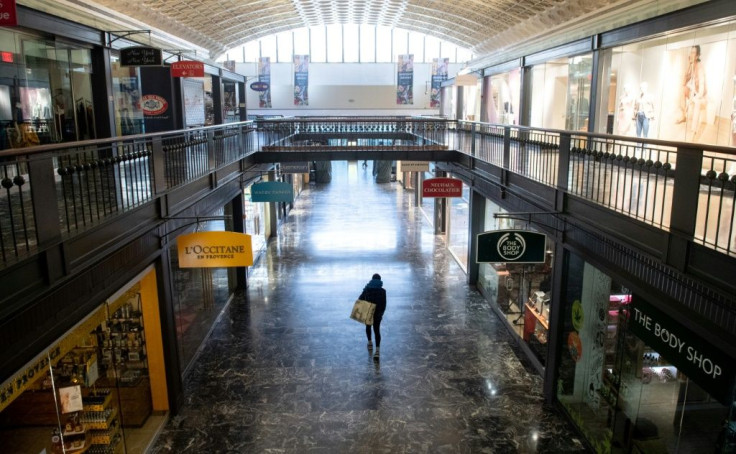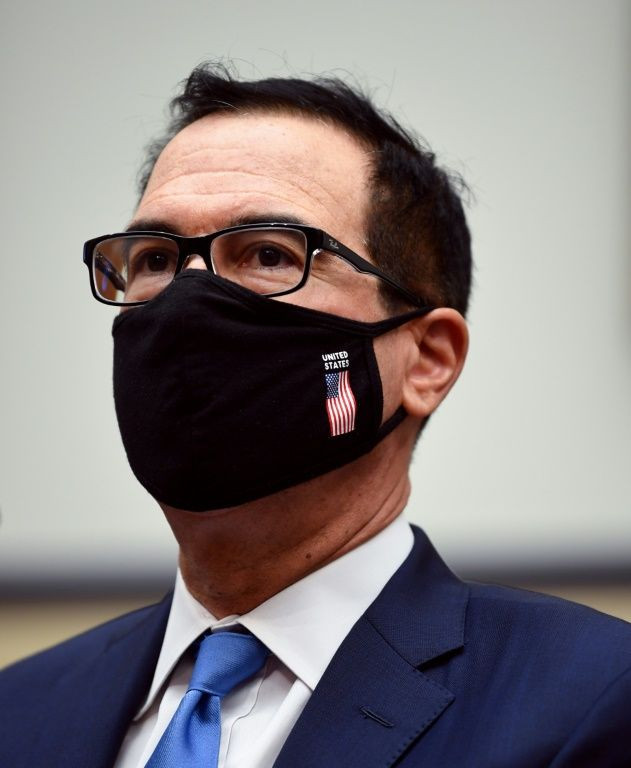Virus Resurgence Poses Biggest Risk To US Economy: IMF

The dominant risk to the US economic recovery is a resurgence of COVID-19 cases that would force renewed business shutdowns, the International Monetary Fund warned Friday.
The US government will need to do more in coming months to provide support to households and boost demand, as well as address worsening poverty and the shortcomings of the U.S. health system, the IMF said in its annual review of the world's biggest economy.
"Even with the unprecedented policy support being provided to the economy," the US suffered a 37 percent collapse in GDP in the second quarter, and the economy is expected to contract by 6.6 percent in 2020, the fund said, stressing the "tremendous uncertainties" surrounding the outlook.
"The principal risk, and one that is the most difficult to quantify, is that a resurgence in the number of COVID-19 cases in the US could lead to renewed, partial shutdowns," the report said.
With case counts spiking in states like Florida, Georgia, Texas and California, local authorities already have reimposed some restrictions.
The Washington-based crisis lender said the recovery "will require a further round of fiscal measures in the coming months that boost demand, increase health preparedness, and support the most vulnerable."
"The US has fiscal space and it should be deployed quickly to hasten the recovery from the second quarter contraction, permanently improve the social safety net, and facilitate a broader remaking of the US economy," it said.
President Donald Trump's administration is negotiating with Congress on the form of the next aid package, with internal debate reportedly raging over whether to reduce payroll taxes, which would only help people who are receiving salaries, or to extend unemployment benefits.
The clock is ticking since the expanded benefits that include a $600 weekly payment from the federal government on top of any state benefits, as well as help for contractors or self-employed workers, expire on July 31.
Treasury Secretary Steven Mnuchin said in testimony before Congress on Friday that the next round of support should go to industries that have been hardest hit by the crisis.
"There should be a second check available to the businesses that are the hardest hit," Mnuchin said at a House hearing, adding that he would work with Congress to determine the size of company eligible for a second round of financing.

But Mnuchin also highlighted signs that the economy is recovering.
And indeed data this week showed a surge in retail sales, manufacturing and home building in June.
But more recent data, as new restrictions have been implemented, show new applications for unemployment benefits are holding steady.
Consumer confidence for the first half of July fell, eroding much of the gains in June, according to the closely-watched University of Michigan survey released Friday.
Economists warn that the situation could erode if the epidemic worsens.
About 15 million US workers are jobless, and major airlines have announced tens of thousands of layoffs starting in October.
Newly-installed World Bank chief economist Carmen Reinhart on Friday warned policymakers not to "confuse rebound with recovery."
While output has bounced back from the steep decline, that "is not the same as true recovery," which remains "in the distant future," Reinhart said.
The IMF agreed with many other economists in warning that the brunt of the economic impact of the coronavirus crisis is being borne by lower income families, predominantly black and Hispanic, who are least able to weather the downturn and will need more support.
"There are already urgent warning signs that the depth of the economic contraction and the sectoral distribution of economic losses will lead to a systemic increase in poverty," the IMF said.
Federal Reserve Chair Jerome Powell and other central bankers have urged the government to step in to provide more support to the economy, and that chorus was joined by Powell's two predecessors, Janet Yellen and Ben Bernanke, in testimony before Congress Friday.
"The spending is absolutely needed," Yellen said.
© Copyright AFP {{Year}}. All rights reserved.





















